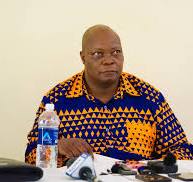Brenna Matendere
Harare—The Zimbabwe Republic Police (ZRP) continues to hog the limelight for its continued clampdown on human rights lawyers.
The police have tended to ill-treat human rights lawyers representing political activists, journalists and other human rights defenders, invariably accusing them of defeating the course of justice.
The latest case was reported on 24 January when armed police details harassed Harrison Nkomo who was representing the former Zengeza West legislator, Job Sikhala.

Sikhala, who had been detained since 14 June 2022, has since been convicted of inciting public violence and given a suspended two-year jail term.
He was last week convicted again, this time for publishing falsehoods and was today (Thursday) fined US$500 and given a wholly suspended nine-month jail term for the offence.
The police harassment of Nkomo, a senior legal practitioner, courted the ire of the Zimbabwe Lawyers for Human Rights (ZLHR).
The United Nations (UN) Basic Principles on the Role of Lawyers obligate governments to ensure lawyers’ freedom to perform their professional functions without intimidation, hindrance, harassment or improper interference.
The UN principles require that lawyers be adequately protected when their security is threatened.
According to a ZLHR statement, Nkomo went to the magistrates’ court as the lead lawyer representing Sikhala who was on trial for inciting public violence and communicating falsehoods.
He was reportedly violently barred by some ZRP officers from entering a courtroom where the trial was taking place and had a firearm pointed at him, despite having identified himself to the law enforcers.
According to the statement, Sikhala’s other lawyer, Jeremiah Bamu, protested against the ill-treatment of his colleague.
The presiding magistrate, Tafadzwa Miti, subsequently ordered prosecution to investigate circumstances relating to the harassment but the findings are yet to be known.
Nkomo was later allowed to get into court to represent Sikhala with Bamu after a lengthy delay.
“ZLHR strongly condemns this unwarranted interference in the work of a professional legal his practitioner and the subsequent reckless threat to his life, which emanated from having a firearm pointed at him.
“Law enforcement agents must respect the rights of legal practitioners and stop attacks on lawyers while carrying out legitimate and professional duties,” wrote ZLHR.
A leading human rights lawyer, Wilbert Mandinde, is worried by the continued violation of lawyers’ rights by the police.
“We find the conduct of the police officers to be very unprofessional. It depicts lack of respect for lawyers, who are officers of the court and, therefore, deserve to be respected. When a lawyer is attacked at a court where he is expected to represent other people you then wonder who will be the last line of defence.
“Human rights lawyers, to be precise, go to the frontline to defend the vulnerable and must not be attacked. We have seen this before and it is a repeat of the past,” said Mandinde.
In September last year, the police arbitrarily arrested and detained lawyers Doug Coltart and Tapiwa Muchineripi who were representing Womberaiishe Nhende, an opposition councillor, and Sonele Mukhuhlani who had been reportedly abducted and dumped on the outskirts of Harare.
The two abductees were receiving treatment at a hospital in the capital following the abduction and Coltart as well Muchineripi were charged with obstructing the course of justice for requesting the police to treat them humanely since they were injured.
Amnesty International’s deputy director for Southern Africa, Khanyo Farisè, rapped the arrests and described them as “an attack on the independence of the legal profession and fair trials in Zimbabwe”.
“We strongly condemn the arrest and detention of human rights lawyers simply for discharging their functions. Their arrests are a travesty and mark a new low for what is left of the rule of law in Zimbabwe,” said Farisè.
In one of the cases that then attracted international headlines, human rights lawyer, Beatrice Mtetwa in 2013 responded to a call by Thabani Mpofu, who was a staff member in the late former Prime Minister Morgan Tsvangirai’s office.
When she arrived at his home, police were conducting a search and asked for the warrant but, instead of doing so, the police arrested her for allegedly obstructing the course of justice.
She was detained for eight days before getting bail at the High Court.
Six years before, in May 2007, Mtetwa—then president of the Law Society of Zimbabwe—was the victim of a brutal physical attack by State security agents that forced the Committee to Protect Journalists (CPJ) to call for a full investigation into the incident that left her with bruises on her back, arms and legs.
Mtetwa had been arrested together with three other legal practitioners—Chris Mhike, Colin Kuhini, and Terence Fitzpatrick—following a lawyers’ protest over the incarceration of two other advocates the previous week.
The two advocates were challenging the detention of opposition members facing a trumped-up charge of organising bomb attacks.
On Sunday, 7 June 2020, ZRP members arrested and charged Harare-based lawyer Tapiwa Makanza with defeating or obstructing the course of justice.
Makanza was accused by prosecutors of creating a fictitious person, Simbarashe Zuze, who , actually, is the one who in January 2019 filed an application in the Constitutional Court challenging President Emmerson Mnangagwa’s appointment of Kumbirai Hodzi as Prosecutor-General despite scoring low marks during interviews conducted by the Judicial Service Commission (JSC).
In another case, advocates Choice Damiso and Lawman Chimuriwo were quizzed by ZRP members on 6 June 2020 in the course of their duties and later released for representing clients in politically charged cases, among them Thabani Mpofu.
On the same day, more than 400km away in Bulawayo, another lawyer, Dumisani Dube, was arrested and charged with defeating or obstructing the course of justice after successfully filing an urgent chamber application for a client.
He was accused of forging a certificate of service that resulted in a default judgment that favoured his client.


Comments are closed.